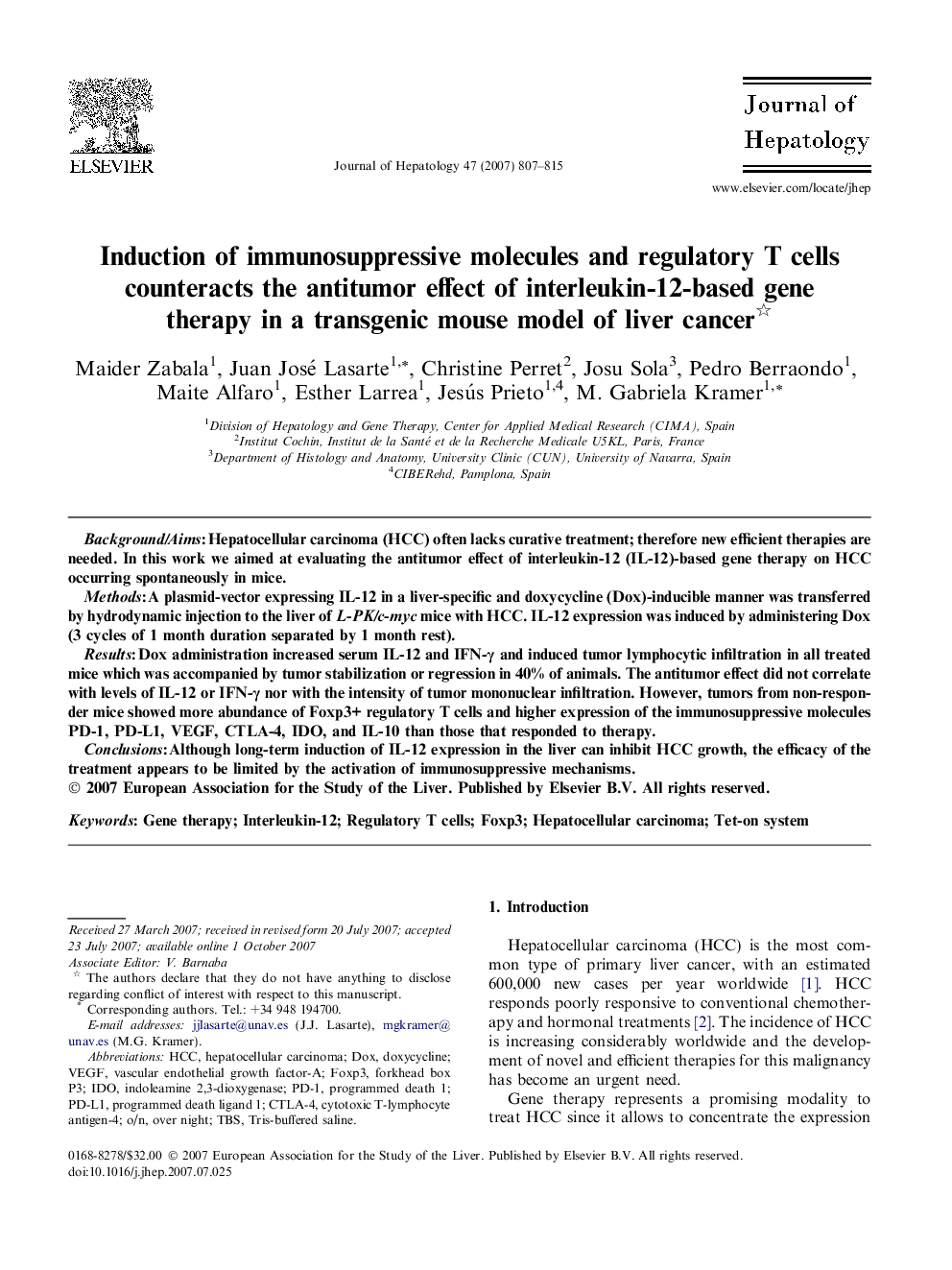| Article ID | Journal | Published Year | Pages | File Type |
|---|---|---|---|---|
| 3314453 | Journal of Hepatology | 2007 | 9 Pages |
Background/AimsHepatocellular carcinoma (HCC) often lacks curative treatment; therefore new efficient therapies are needed. In this work we aimed at evaluating the antitumor effect of interleukin-12 (IL-12)-based gene therapy on HCC occurring spontaneously in mice.MethodsA plasmid-vector expressing IL-12 in a liver-specific and doxycycline (Dox)-inducible manner was transferred by hydrodynamic injection to the liver of L-PK/c-myc mice with HCC. IL-12 expression was induced by administering Dox (3 cycles of 1 month duration separated by 1 month rest).ResultsDox administration increased serum IL-12 and IFN-γ and induced tumor lymphocytic infiltration in all treated mice which was accompanied by tumor stabilization or regression in 40% of animals. The antitumor effect did not correlate with levels of IL-12 or IFN-γ nor with the intensity of tumor mononuclear infiltration. However, tumors from non-responder mice showed more abundance of Foxp3+ regulatory T cells and higher expression of the immunosuppressive molecules PD-1, PD-L1, VEGF, CTLA-4, IDO, and IL-10 than those that responded to therapy.ConclusionsAlthough long-term induction of IL-12 expression in the liver can inhibit HCC growth, the efficacy of the treatment appears to be limited by the activation of immunosuppressive mechanisms.
